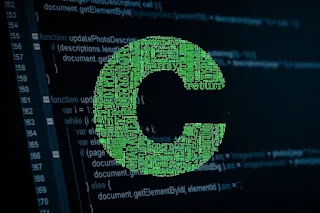DYNAMIC MEMORY ALLOCATION(DMA)
- The process of allocating memory during program execution is called dynamic memory allocation
- c language offers 4 dynamic memory allocation function. They are calloc(), malloc(),realloc(),free()
- stdlib.h
Dangling pointer in c
- Dangling Pointer occurs when a pointer pointing to a variable goes out of scope or when an object/variable's memory gets deallocated,
- Dangling pointers arise when an object is deleted or de-allocated, without modifying the value of the pointer, so that the pointer still points to the memory location of the de-allocated memory.
- In short pointer pointing to non-existing memory location is called dangling pointer.
- There are three different ways in which a pointer can act as a dangling pointer in C :
- Deallocation of memory
- Function Call
- Variable goes out of scope
 |
| ADVANCED C |
- Deallocation of memory
When we deallocate a memory block using free() function and do not modify the pointer value, it will cause the pointer to act as a Dangling Pointer.
// Dangling Pointers using dynamic memory allocation
#include
int main()
{
int *ptr = (int *)malloc(sizeof(int)); // normal pointer
*ptr = 10;
// memory block deallocated using free() function free(ptr);
// here ptr acts as a dangling pointer
printf("%d", *ptr);
// prints garbage value in the output console
return 0;
}
Tags:
khowladge